Physics
Sign up for our newsletter
We summarize the week's scientific breakthroughs every Thursday.
-
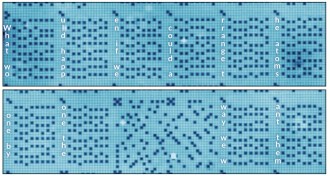 Computing
ComputingSupersmall device uses individual atoms to store data
Scientists manipulate chlorine atoms to store data on a supersmall device.
-
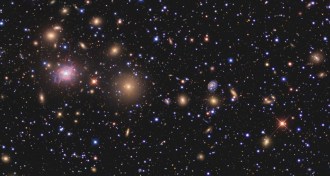 Astronomy
AstronomyDark matter candidate particles are a no-show in Hitomi data
Before the Hitomi satellite broke apart, it captured data that cast further doubt on evidence of X-rays from dark matter particles in a galaxy cluster.
-
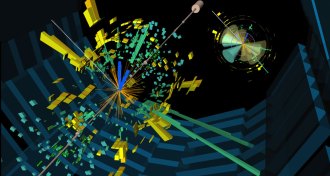 Particle Physics
Particle PhysicsNew data give clearer picture of Higgs boson
Scientists are carefully measuring the Higgs boson’s properties.
-
 Earth
EarthGeneral relativity has readers feeling upside down
Readers respond to the June 25, 2016, issue of Science News with questions on Earth's age, moaning whales, plate tectonics and more.
-
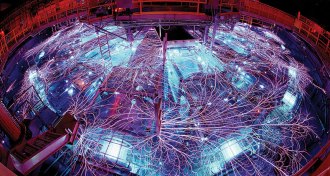 Physics
PhysicsThe pressure is on to make metallic hydrogen
Scientists are getting close to turning hydrogen into a metal — both in liquid form and maybe even solid form. The rewards, if they pull it off, are worth the effort.
-
 Environment
EnvironmentNew desalination tech could help quench global thirst
Designed with better, more energy-efficient materials, next-generation desalination plants may offer a way to meet the world’s growing need for freshwater.
-
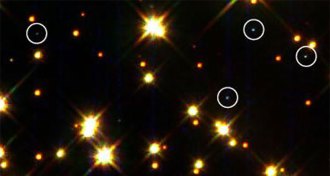 Particle Physics
Particle PhysicsCooling stars hint at dark matter particles
Stars that cool faster than expected can be explained by hypothetical particles called axions.
-
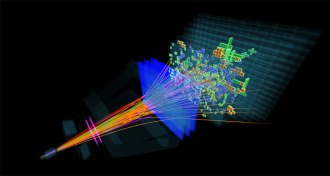 Particle Physics
Particle PhysicsBottom quarks misbehave in LHC experiment
Bottom quarks fly off at an angle more often than expected in new data from the LHC.
-
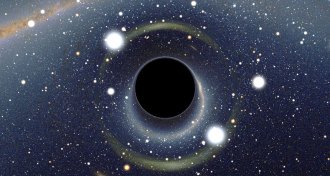 Physics
PhysicsLIGO’s black holes may be dark matter
Two analyses indicate that LIGO could have detected black holes that formed just after the Big Bang.
-
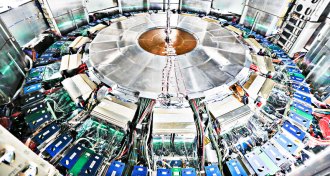 Particle Physics
Particle PhysicsUpon further review, suspected new particle vanishes
Hints of a new particle at the LHC have disappeared.
-
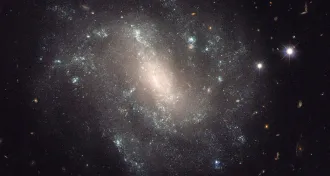 Cosmology
CosmologyDebate accelerates on universe’s expansion speed
A puzzling mismatch is plaguing two methods for measuring how fast the universe is expanding.
-
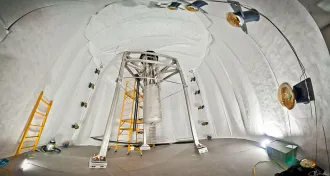 Particle Physics
Particle PhysicsLatest search for dark matter comes up empty
Scientists continue to come up empty-handed in the search for dark matter. The latest effort from the LUX experiment found no evidence for dark matter.